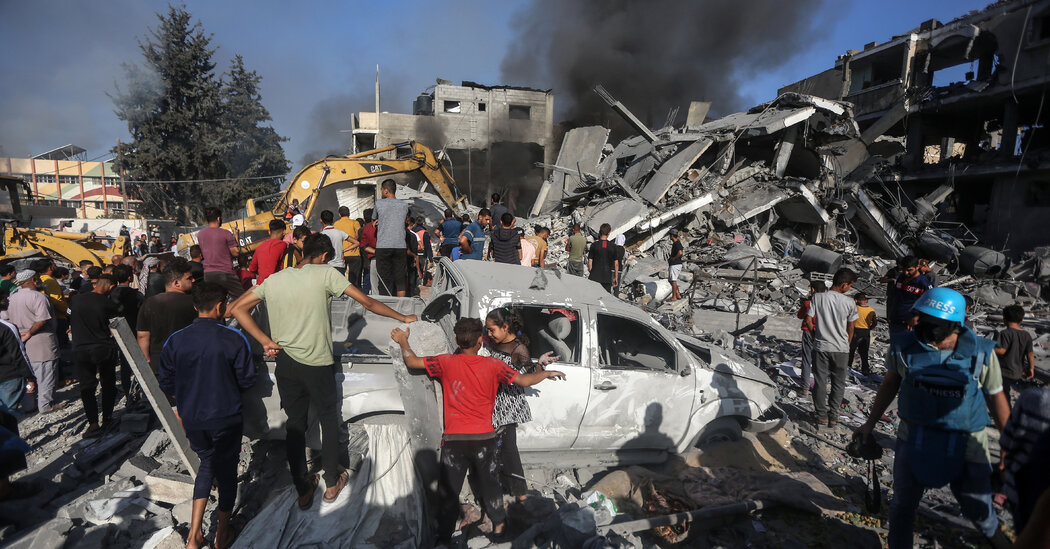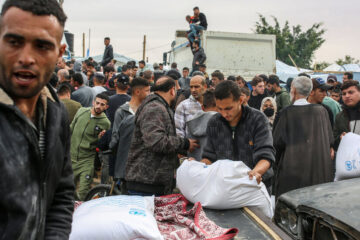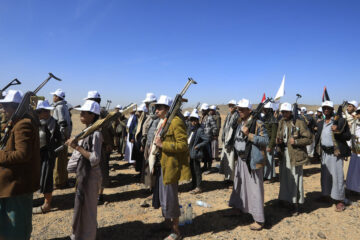[ad_1]
What lies ahead?
Antony Blinken, the U.S. secretary of state, said yesterday that Gaza should be unified with the West Bank under the Palestinian Authority once the war ends, the strongest signal yet from the Biden administration about what it would like to see at the end of Israel’s fight against Hamas. But what Israel will do in Gaza is largely unclear.
For some insight, I turned to Patrick Kingsley, The Times’s Jerusalem bureau chief, who covers Israel and the occupied territories.
What are you expecting in the next few weeks?
If Israel continues as planned with its invasion, the next few weeks could be the bloodiest of the war so far. Already, roughly 1,400 Israelis and over 10,000 Palestinians in Gaza have been killed, according to the Hamas-run health authorities in Gaza.
That death toll could rise once Israel starts fighting in earnest within the urban warren that is Gaza City, which is Hamas’s stronghold and the primary target of Israel’s invasion. Once Israeli forces enter en masse into Gaza City, we will see very intense urban warfare, in part because this is Hamas’s home turf. It’s where they’ve built and dug hundreds of miles of subterranean tunnels from which they can emerge and launch ambushes that will stymie the Israeli army’s progress.
The biggest question is what Israel’s army will do once they reach the hospitals in central Gaza City, which they claim are the headquarters of Hamas’s military command. Hamas denies that claim, but Israel is adamant that is where Hamas’s leadership is hiding. While they haven’t clearly said this, the implication is that they are going to have to take over these hospitals in order to complete their goal of removing Hamas from the Gaza Strip. Doing so would see fierce fighting inside a location that is supposed to be off limits during a war. And we could be about to witness some very troubling scenes of violence inside places that are supposed to be sanctuaries.
What’s Israel’s endgame in Gaza?
Israel’s plan is still quite vague. They’ve said they want to disband Hamas’s political leadership and military capabilities. They’ve also said that they will retain security control of Gaza “indefinitely.” But it isn’t clear how long they plan to take to do that, or how much time the U.S. government will give them to do that before they start to withdraw their support. It’s also not clear how much time Israel has to do that before there starts to be regional repercussions — like the entry of Hezbollah, the Lebanese militia, into the war — that will force them to rethink their strategy in Gaza.
What will Israel do if and when it takes over the Gaza Strip?
That also isn’t clear. There are calls within Israel to reoccupy it permanently and establish Israeli settlements there, just as there were before 2005 when Israel withdrew from the enclave. There are suggestions that the Palestinian Authority, which administers parts of the occupied West Bank, might take over in Gaza. And there are also suggestions of a regional peacekeeping force having some kind of authority over Gaza.
What’s the mood in Israel?
It’s one of turmoil, profound pain and grief. Oct. 7 was the deadliest day for Jews since the Holocaust ended, according to Israeli officials, and the idea of families burned alive by Hamas or their allies, civilians shot dead in the streets, in their homes, has been extremely triggering.
Everyone — or what feels like everyone in Israel — knows someone who has been killed or kidnapped, and many families have sons and daughters who have been called up to either defend the northern border with Lebanon or participate in the invasion of Gaza. So there’s a nervous energy in the air and there’s a deep sense of mourning.
There’s also a deep sense of anger at the government and the security services for having allowed the attack on Oct. 7 to occur. And there’s a lack of faith, according to recent polls, in Prime Minister Benjamin Netanyahu’s ability to lead Israel out of this crisis.
How do the Palestinians feel?
The mood among Palestinians is one of real terror and fear. They fear a mass displacement from the Gaza Strip and the West Bank. They are already grieving and mourning the largest number of civilians to die in the Israeli-Palestinian conflict since 1982, when Israel invaded Lebanon. And they fear that much more bloodshed is to come.
As Israel’s bombing continues and Israel’s ground invasion gets closer to the heart of Gaza City, they also feel abandoned by the West and the U.S., which they perceive to have wholly taken Israel’s side.
Washington loses its pandas
The three pandas at the Smithsonian’s National Zoo in Washington — Mei Xiang, Tian Tian and their cub, Xiao Qi Ji — were loaded onto a plane yesterday and taken to China. Their departure was the end, for now, of an era of panda diplomacy — a symbol of the ties between the U.S. and China.
Many American fans were saddened by the pandas’ departure, but zoo officials said the two older pandas were at ages (25 and 26) that were appropriate for them to return to China, where they will join about 150 other pandas in a lush nature preserve.
RECOMMENDATIONS
[ad_2]
Source link




